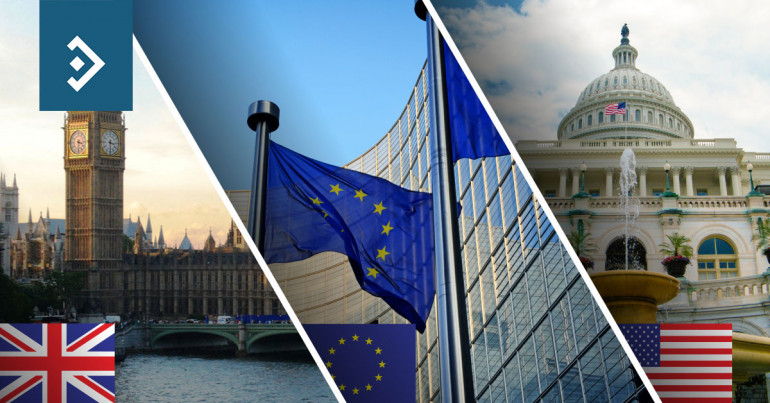
Zero rates looking more likely
Morning mid-market rates – The majors
22nd May: Highlights
- Recovery starts but it’s only relative to what’s gone before
- Jobless claims fall below 2.5 million. And that’s a good thing?
- Gradual reopening brings economic hope
Improved PMI’s may signal the bottom has passed
Having said that, it was still well below the worst ever seen bar last month and the downturn is likely to be significantly more severe than 2008.
As the Government announced new measures around testing and tracing, traders were considering the possibility that the Bank of England may introduce negative rates to help the recovery.
Andrew Bailey the Governor of the Bank of England testified before Parliament and commented that negative rates were under review. The fall in inflation to a four-year low may well have tipped the balance and the market is prepared as the Central Bank has acted between meetings this year already.
Modern economics is creating precedents as Central Banks become more creative in combating crises. The introduction of QE was supposed to bring in uncontrollable inflation when first introduced and that hasn’t happened. It has in fact become a genuine policy instrument. Negative rates have been seen in a few economies already and could easily go the same way.
The primary downside of such a policy is that it squeezes bank profits making them less keen on lending and forcing them to raise their fees on clothes products and services.
Yesterday, the pound fell to a low of 1.2185, closing at 1.2225 versus the dollar. Versus the single currency it continued its recent fall making a low of 1.1110 but recovered to close at 1.1166.
Considering your next transfer? Log in to compare live quotes today.
Lockdown demonstrations take on political dimension
New York is a Democrat State but there is a significant (and loud) Republican faction that is demonstrating to lift the lockdown and get the economy moving again. They are blaming Governor Andrew Cuomo, already slated to be the Democrat Candidate for the 2024 Presidency, for his seeming reticence to open things up citing the truly appalling data for infections and deaths.
That in a nutshell is the issue facing the Administration which is in just about as confused a state.
This is making it impossible for the Treasury and the Fed to plan the support that will be necessary to aid the economy while the pandemic continues, and provide assistance when the lockdown is lifted. As has been said before, the lifting of the lockdown will be at least a three stage affair. There are the States where the peak has been reached like New York and New Jersey, The States that have been barely affected among them are Wyoming and Montana and those where infections are spiking like Louisiana and Mississippi.
The most visible effect of the pandemic on the economy is in the number of jobless. In keeping with other nations recent numbers, the data for weekly jobless claims was horrendous but improving. Over the past week, 2.4 million people have registered for unemployment benefits.
The level of household debt in the country has also been brought into stark relief as those who have not been paid for 6-8 weeks are starting to use charitable efforts like food banks in order to survive.
As the market awaits more action from the Fed, the dollar index recovered some of its recent losses yesterday. It rose to a high of 99.51, closing at 99.45.
With a week until the May employment report, analysts have virtually given up trying to predict the headline. The best guess most have is between ten million and fifteen million but that spread may not even be wide enough.
How long before the action is needed?
Since then? Nothing.
Merkel went back to Berlin where she has to convince lawmakers and Macron lost his majority in the National Assembly. The financial markets took the news of a breakthrough well and the euro started to rally. But, what now?
The single currency is trading at a major resistance point and a confused market will most likely take the gains it has got and clear the decks. If that is not to happen to the single currency, the other parts of the Union now have to step up. But, will that happen?
The Preliminary PMI data that was released yesterday was, in keeping with other nations, an improvement on last month but that won’t mean much to the market until there is a coherent and most importantly acceptable agreement to provide funding to restart the economy as the lockdown is gradually lifted.
If nothing else, the journey out of lockdown is beginning but isolated spikes in infections in France in particular, are leading to concerns.
Yesterday, the euro suffered a case of altitude sickness as it traded up to 1.1008, It fell back to close at 1.0944 as the market remains unconvinced that a solution to the funding dispute has been found or agreed upon.

About Alan Hill
Alan has been involved in the FX market for more than 25 years and brings a wealth of experience to his content. His knowledge has been gained while trading through some of the most volatile periods of recent history. His commentary relies on an understanding of past events and how they will affect future market performance.”



